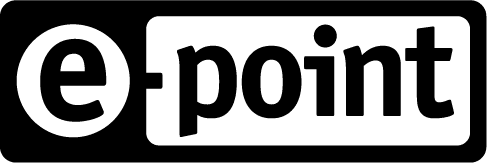Meet our employees: Przemysław Laczycki on the Role of the Front-End Developer
Behind the success of any portal or application stands a group of specialists. Among them, Front-End Developers (FEDs)are responsible for what users will see and how their interaction with the solution will work. It is up to them whether a user's interaction with the new product is love at first sight or bitter disillusionment.
Let’s take a peek behind the FED scenes and talk to Przemek Laczycki, a Senior Front-End Developer at e-point. He’s shared something of his daily experiences with us.
What do your daily duties involve?
My daily tasks are mainly about creating the presentation layer of online applications. Most of the time, these are new functionalities. On occasion, there may be some maintenance jobs I must attend to. As a Senior Front-End Developer, I also help junior developers. Then there are the project implementation duties, including a retrospective. That’s a summary of the job done in the previous sprint, elaborating on what was good and on what went wrong. And there is the planning of subsequent sprints.
What are a Front-End Developer’s key technical skills?
At the core, we have HTML, CSS, JavaScript, and RWD (Responsive Web Design). A true FED should also use version control systems (e.g. Git) or online browsers’ developer tools. And besides that, you need to remember your testing and debugging skills.
What about soft skills?
Teamwork skills are vital. Listening and conveying knowledge, giving feedback, and sharing tasks are particularly important. Developing big applications is a team game, and although it gets rough at times, it is very good to be able to rely on others. We face various challenges every day, so creativity and the ability to solve problems are indispensable.
Do you remember the moment you resolved to become a Front-End Developer?
In high school, I learned my first programming language (Pascal). From the very start, I liked solving problems through coding. When I was a student, I came across JavaScript, which captivated me with its mix of simplicity and great potential. Even though it is such an "easy" language, you can frequently get something wrong! JavaScript required HTML and CSS; together with my WWW knowledge, I had a solid 'starter package' to begin my internship with e-point.
What technologies are you currently working with?
Predominantly it is JavaScript, in various forms: first it was chiefly jQuery and a bit of React. Recently, I made friends with Angular. HTML is obviously necessary, as well as the various templating languages, e.g. JSX, JSP, Velocity. Originally, I also used Clojure. The third basic tool of any FED is CSS, both pure and in the form of pre-processors like SASS (SCSS) or LESS. I also work with version control systems, mostly Git.
What would you recommend to people who want to become FEDs?
There is something for everyone. I particularly recommend English-language sources to get used to the terminology that will later be used in coding and in projects. For people who prefer listening and watching, there are YouTube tutorials. For those who like reading, there is plenty of documentation, like what Mozilla has.
There are also interactive training courses where learners write their own code.
For more advanced learners, I recommend working on your own projects, building applications and websites modelled on existing solutions. To master your code writing skills in a given language, it is very useful to complete short tasks, e.g. by taking part in coding challenges. You may see other FEDs in action, which can truly enhance your growth.
To finish, can you offer any advice to those at the very beginning of their Front-End adventure?
Start from scratch and master the basics of HTML, CSS, and JavaScript. Then complete some projects of your own and go for an internship. Commercial experience is the most precious achievement of a good FED.

